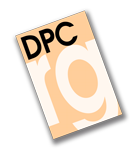La discusión sobre trasplantes legales: recapitulación y análisis. (RI §426703)

The discussion on legal transplants: recapitulation and analysis -
Pablo Lerner
El tema de los trasplantes ha recibido un vasto análisis, pero no por ello debe ser dejado de lado y oblige a ser repensado. Al efecto de delinear el perfil de los trasplantes jurídicos el artículo adopta cuatro módulos o preguntas: La posibilidad y conveniencia de los trasplantes legales; las formas en la que se da la exportación o importación del derecho; los cambios en las instituciones que reciben los trasplantes (incluyendo el importante rol que le cabe a la academia) y la relación entre trasplantes legales y multiculturalismo. El trabajo señala nuevas cuestiones que van formando parte de la discusión sobre los trasplantes jurídicos y la forma en que deben ser repensados en función de las diversas formas de adopción y adaptación de conceptos jurídicos.
I. EL ANÁLISIS PROPUESTO. – II. PRIMERA CUESTIÓN: LA POSIBILIDAD Y CONVENIENCIA DE LOS TRASPLANTES LEGALES. – II.1. El debate. – II.2. La relación del trasplante jurídico con el idioma. – II.3. La calificación del trasplante como exitoso, no exitoso, “super exitoso”, irritante o dañino. – II.4. El trasplante vis à vis con la tradición jurídica dominante. – III. SEGUNDA CUESTIÓN: LA EXPORTACIÓN DEL DERECHO. – III.1. Trasplante impuesto. – III.2. Trasplante ofrecido. – III.3. El Estado no es el único productor y exportador del derecho. – IV. TERCERA CUESTIÓN: CAMBIOS EN LOS “FORMANTES” QUE RECIBEN EL TRASPLANTE. – IV.1. Importación por parte del legislador. – IV.2. Importación por parte de los tribunales. – IV.3. La academia como motor para la transmisión de ideas. – V. CUARTA CUESTIÓN: ENTENDER TRASPLANTES LEGALES A LA LUZ DEL MULTICULTURALISMO. – VI. CONCLUSIÓN.
Though the topic of transplants has been analyzed extensively, it should not be set aside. It is always beneficial to reflect on ideas already expressed and propose new angles of observation.
In order to analyse legal transplants, the article adopts four modules or questions: Their possibility and convenience; the ways in which the law is exported or imported; the changes in the institutions that receive the transplants, and the relationship between legal transplants and multiculturalism.
The present work aims to point out that regarding legal transplants scholars should not abandon ideas and classifications accumulated around the subject; at the same time, however, attention should be paid to new ways of adopting and adapting legal concepts.
I. THE PROPOSED ANALYSIS. – II. THE FIRST ISSUE: THE POSSIBILITY AND DESIRABILITY OF LEGAL TRANSPLANTS. – II.1. The debate. – II.2. The relationship between legal transplantation and language. – II.3. The qualification of transplantation as successful, unsuccessful, “super-successful”, irritating or harmful. – II.4. Transplantation vis à vis the dominant legal tradition. - III. SECOND ISSUE: THE EXPORT OF LAW. – III.1. Imposed transplantation. – III.2. Transplantation offered. – III.3. The State is not the only producer and exporter of the law. – IV. THIRD ISSUE: CHANGES IN THE “FORMANTS” RECEIVING THE TRANSPLANT. – IV.1. Importation by the legislator. – IV.2. Importation by the courts. – IV.3. The academy as an engine for the transmission of ideas. – V. FORTH ISSUE: UNDERSTANDING LEGAL TRANSPLANTS IN THE LIGHT OF MULTICULTURALISM. -– VI. CONCLUSION.
Documento disponible para usuarios registrados.
Para consultar gratuitamente este artículo primero deberá registrarse como usuario.
